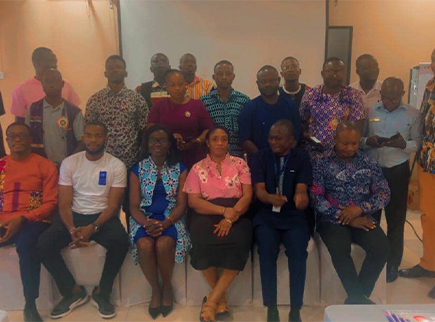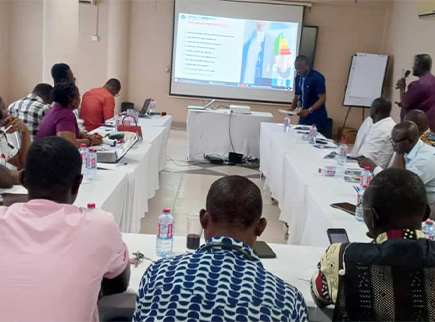The Council for Scientific and Industrial Research–Crops Research Institute (CSIR-CRI) has intensified efforts to promote the adoption of improved vegetable varieties among farmers in the Upper East Region.
The improved varieties, developed by CSIR-CRI in 2022, include tomatoes, okra, and amaranth. Currently, only the tomato varieties — CRI Kwabena Kwabena and KOPIA tomato — have been released, while the okra and amaranth lines are awaiting official release.
At a durbar held at Tono in the Kassena-Nankana Municipality, farmers were educated on the nutritional benefits of the improved vegetable varieties and participated in sensory testing by tasting dishes prepared from them. The exercise enabled the farmers to compare the improved types with local varieties currently under cultivation.
Participants, drawn from Tono, Vea in the Bongo District, and Pwalugu in the Talensi District, also received free seed kits comprising tomato varieties and elite lines of okra and amaranth to enhance local production.
The durbar formed part of the Technologies for African Agricultural Transformation (TAAT) programme, launched by the African Development Bank in 2018 to catalyse agricultural growth, enhance food security, and foster inclusive development across Africa.
In Ghana, CSIR-CRI, in partnership with the World Vegetable Center, is implementing the TAAT II Vegetable Compact Project, which seeks to boost vegetable production, improve nutrition, and increase incomes for farming households.

The project aims to improve farmers’ livelihoods by promoting the adoption of improved vegetable varieties, enhancing productivity, and strengthening the vegetable value chain. It has demonstrated crops in three regions: Volta (Adidome-Ziope, Adaklu, and North Akatsi), Upper East (Tono, Vea, and Pwalugu), and Bono (Berekum East, Dormaa East, and Berekum Municipality).
Activities under the project include conducting field demonstrations, training seed companies on healthy seedling production and marketing, developing a roadmap for vegetable production in Ghana, and creating innovation platforms for the vegetable sector.
Dr. Michael Kwabena Osei, Principal Research Scientist and Vegetable Breeder at CSIR-CRI, Kumasi, explained that the new improved varieties were developed in 2022 and demonstrated to farmers in 2024.
He said climate change was reshaping agricultural production, making it essential to develop improved seeds that are high-yielding and resilient to harsh weather to address food and nutritional security.
“These varieties are unique in their early maturity, climate resilience, and high yield,” he said. “For instance, the new tomato varieties produce about 20 tonnes per hectare compared to 10 tonnes per hectare from local varieties. They are hybrids suitable for both the fresh market and processing industries, and tolerant to major diseases.”
Dr. Osei urged farmers to adopt the new varieties to boost production, reduce vegetable imports—especially tomatoes—and strengthen national nutritional security.
Ms. Jessica Kukua Baidoo, Research Associate at the World Vegetable Center, reaffirmed the Centre’s commitment to partnering with CSIR to ensure that new and improved technologies reach farmers to boost agricultural transformation.
Mr. Sulemana Matthew, Talensi District Director of the Department of Agriculture, commended the initiative, describing the high-yielding and climate-resilient varieties as suitable for the area, and encouraged farmers to embrace them.
Mr. Kingsley Kawi, a Nutritionist at the Ghana Health Service in the Kassena-Nankana Municipal Directorate, highlighted the importance of vegetable consumption for good health and urged increased production.
Farmers who took part in the tasting exercise praised the initiative, saying the food tasted better and expressing their readiness to adopt the improved varieties.

